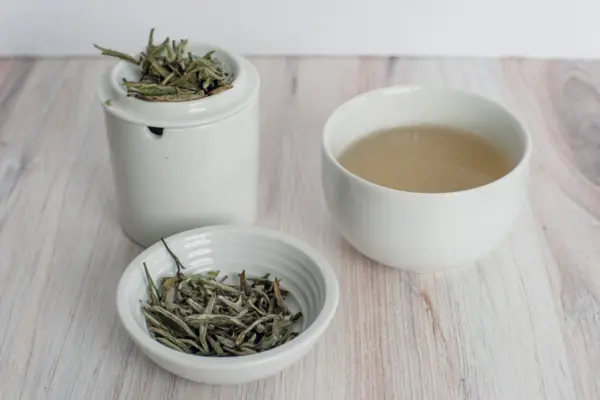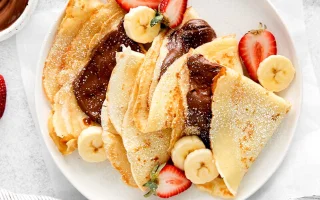Do you enjoy drinking tea but want to cut back or completely avoid caffeine?
You’ve probably heard of white tea, which is renowned for its mild flavor. But, does white tea have caffeine?
This post will examine the response to that query as well as delve into some further fascinating white tea information.
What Is White Tea?
The Camellia sinensis plant is used to make the variety of tea known as white tea. This tea, which is primarily grown in China’s Fujian province, is renowned for its mild flavor and pale color.
It is manufactured from the newest leaves and buds of the tea plant and has undergone the least processing of any tea.
White Tea Processing
White tea is harvested in the spring when the buds are still closed. The tea leaves are then withered and dried in the sun or indoors.
The processing of white tea is minimal, and the tea leaves are not oxidized or rolled like other teas.
Caffeine In Tea
The caffeine component of tea is well recognized. Natural stimulants like caffeine can improve focus and alertness. It can be found in varied degrees in many teas and coffees.
Does White Tea Have Caffeine?
Yes, white tea contains caffeine. White tea contains less caffeine than other varieties of tea, including black and green tea.
White tea’s caffeine level varies depending on the way it was processed, how old the tea leaves were, and how long it was brewed.

The Amount Of Caffeine In White Tea
The caffeine content in white tea is generally lower than other teas. On average, a cup of white tea contains about 15-30 milligrams of caffeine.
This is less than green tea, which has about 30 to 50 milligrams of caffeine per cup, and black tea, which has roughly 60 to 90 milligrams.
White Tea Vs. Other Teas
In terms of production and flavor, white tea is distinctive from other types of tea. Since it has undergone the least processing of any tea, it has a mild and delicate flavor.
Contrarily, black tea is fully oxidized and has a stronger, more assertive flavor. Green tea is also unoxidized, but it is pan-fired or steamed, giving it a fresh and grassy flavor.
Health Benefits Of White Tea
White tea has a lot of antioxidants, which can protect cells from oxidative stress and lower your chance of developing chronic illnesses like cancer and heart disease.
It also contains the amino acid theanine, which can promote relaxation and reduce stress.
How To Brew White Tea?
Brewing white tea is easy and straightforward. Here are the steps to brew a perfect cup of white tea:
- Boil water and let it cool for a few minutes.
- Add 1-2 teaspoons of white tea leaves to a teapot or infuser.
- Pour the hot water over the tea leaves and let it steep for 2-3 minutes.
- Strain the tea leaves and serve.
Serving Suggestions For White Tea
White tea can be savored on its own or flavored with honey or a slice of lemon. It may be used with various herbs and spices and makes a fantastic base for tea blends.
Conclusion
Although white tea does have some caffeine, it is much less than other types of tea. This makes it an excellent choice for individuals who wish to consume less caffeine while still taking advantage of tea’s health advantages and delicate flavor.
Antioxidant-rich white tea helps ease tension and promote relaxation. It is simple to make, and you can drink it alone or with several flavors. Overall, white tea makes a wonderful addition to the inventory of any tea enthusiast.
- Jet’s Ranch Recipe: Make The Famous Dip At Home - April 12, 2025
- James Hemings Macaroni And Cheese Recipe – History On A Plate - April 3, 2025
- French Dip Squares Recipe – Better Than A Sandwich! - March 25, 2025



1 thought on “Does White Tea Have Caffeine: Separating Fact From Fiction”